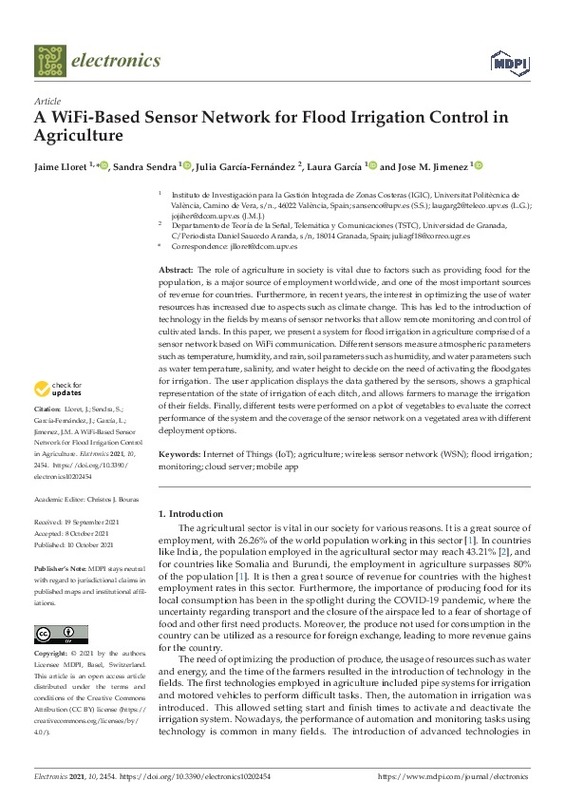JavaScript is disabled for your browser. Some features of this site may not work without it.
Buscar en RiuNet
Listar
Mi cuenta
Estadísticas
Ayuda RiuNet
Admin. UPV
A WiFi-Based Sensor Network for Flood Irrigation Control in Agriculture
Mostrar el registro completo del ítem
Lloret, J.; Sendra, S.; Garcia-Fernandez, J.; García, L.; Jimenez, JM. (2021). A WiFi-Based Sensor Network for Flood Irrigation Control in Agriculture. Electronics. 10(20):1-29. https://doi.org/10.3390/electronics10202454
Por favor, use este identificador para citar o enlazar este ítem: http://hdl.handle.net/10251/181763
Ficheros en el ítem
Metadatos del ítem
| Título: | A WiFi-Based Sensor Network for Flood Irrigation Control in Agriculture | |
| Autor: | Garcia-Fernandez, Julia | |
| Entidad UPV: |
|
|
| Fecha difusión: |
|
|
| Resumen: |
[EN] The role of agriculture in society is vital due to factors such as providing food for the population, is a major source of employment worldwide, and one of the most important sources of revenue for countries. Furthermore, ...[+]
|
|
| Palabras clave: |
|
|
| Derechos de uso: | Reconocimiento (by) | |
| Fuente: |
|
|
| DOI: |
|
|
| Editorial: |
|
|
| Versión del editor: | https://doi.org/10.3390/electronics10202454 | |
| Código del Proyecto: |
|
|
| Agradecimientos: |
This work was partially supported by the European Union through the ERANETMED (Euromediterranean Cooperation through ERANET joint activities and beyond) project ERANETMED3-227 SMARTWATIR, by the Programa Estatal de I+D+i ...[+]
|
|
| Tipo: |
|









